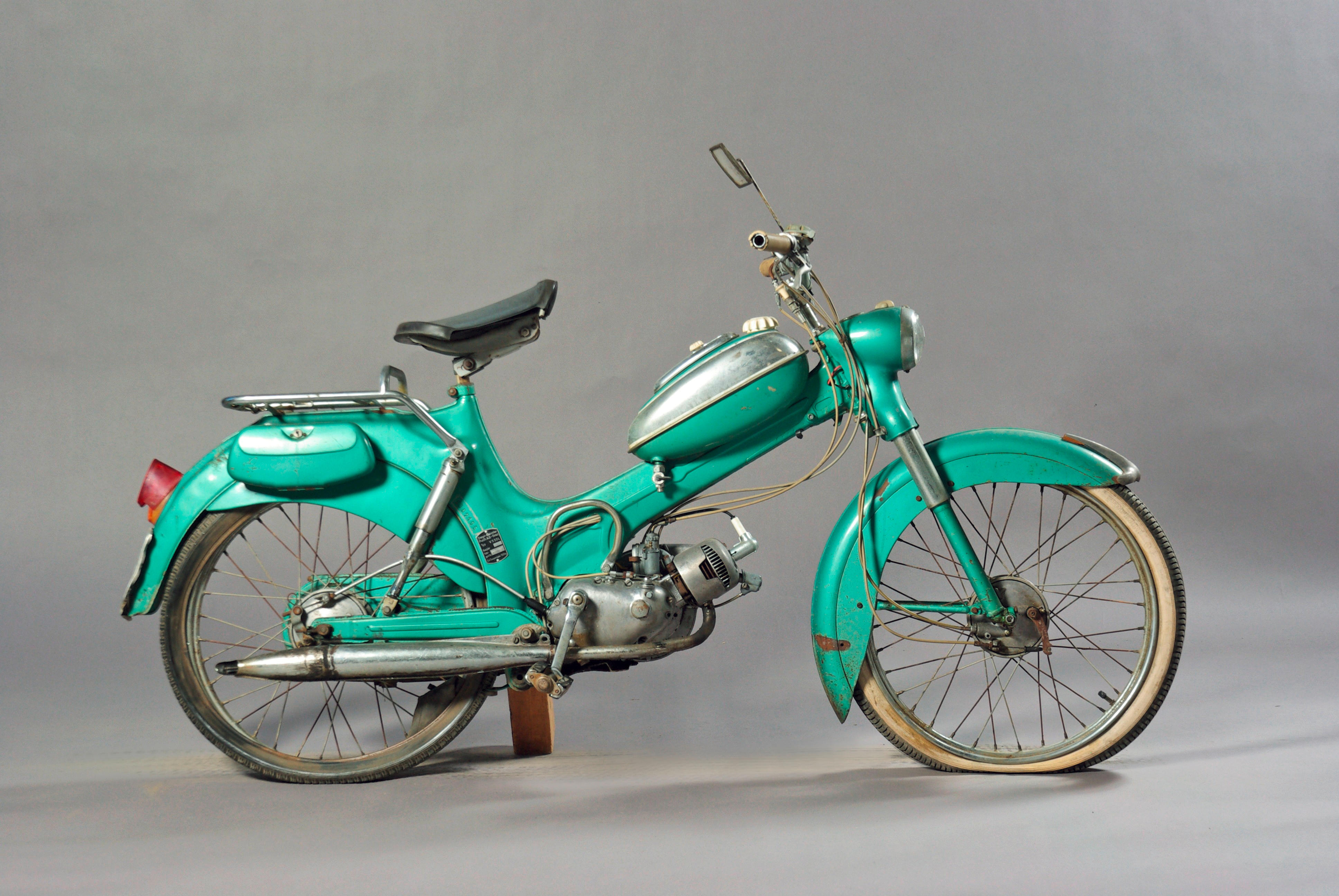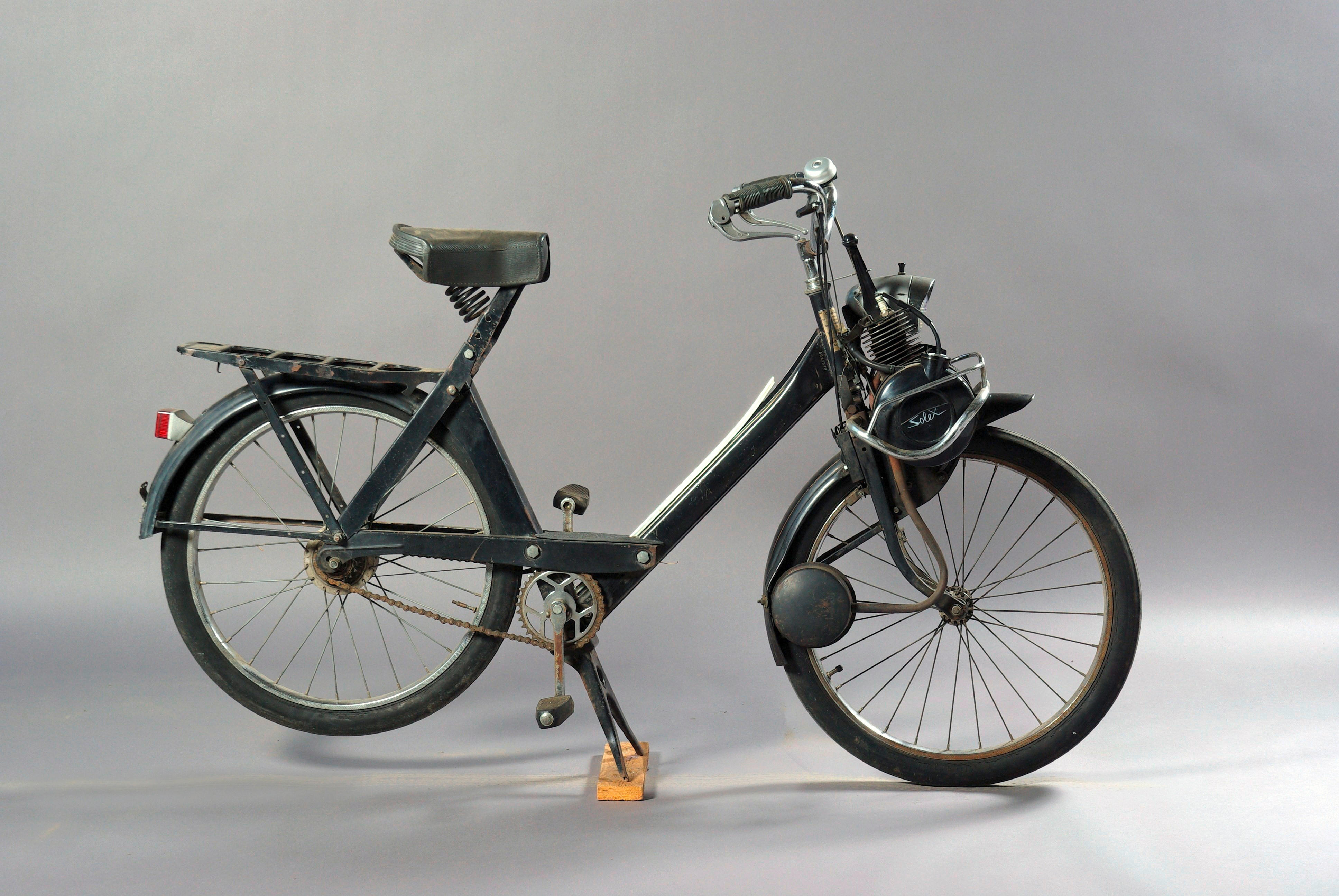When production resumed post-war, Norton’s over-the-counter racer emerged much as it had been in 1939, with single-overhead-camshaft engine, ‘square cylinder head finning, upright gearbox, and plunger-suspended ‘garden gate’ frames. Only the presence of the Roadholder telescopic front fork readily distinguished the new Manx from its immediate predecessor. 1949 brought the first significant change in engine specification, the Manx gaining a double-overhead-camshaft ’head like that enjoyed by the works bikes for many years, but the major development was the arrival of the Featherbed frame for 1951. The cycle parts remained essentially unchanged from then on but engine development continued until production ceased at the end of 1962, the most significant design change being the adoption of ‘square’ bore and stroke dimensions on both the 350 and 500 models for 1954. This short-stroke 350 Manx was imported into Austria and first raced by Leopold Zöchling. Zöchling soon passed it on to Bertie Schneider, who later became the first Austrian to secure a works Suzuki contract. Isle of Man TT records show that Schneider raced a Manx Norton in the Junior event in 1959, ’60, ’61 and ’62, his best result being 14th place in 1962, the same year that he finished a highly creditable 4th in the Senior, also on a Manx. The machine subsequently passed to Kurt Schachl and then to Otto Heisinger, from whose family it was purchased by Professor Ehn in 1975. Professor Ehn used the Manx regularly for ‘oldtimer’ meetings, the last such occasion being in 1999 at the Salzburgring, after which it was cosmetically restored by the Hentschel company in Krems, the engine and transmission being left untouched. Since then the Manx has remained on display in the Museum. Rare in retaining matching frame and engine numbers, the machine is offered with bill of sale and assorted action photographs.
When production resumed post-war, Norton’s over-the-counter racer emerged much as it had been in 1939, with single-overhead-camshaft engine, ‘square cylinder head finning, upright gearbox, and plunger-suspended ‘garden gate’ frames. Only the presence of the Roadholder telescopic front fork readily distinguished the new Manx from its immediate predecessor. 1949 brought the first significant change in engine specification, the Manx gaining a double-overhead-camshaft ’head like that enjoyed by the works bikes for many years, but the major development was the arrival of the Featherbed frame for 1951. The cycle parts remained essentially unchanged from then on but engine development continued until production ceased at the end of 1962, the most significant design change being the adoption of ‘square’ bore and stroke dimensions on both the 350 and 500 models for 1954. This short-stroke 350 Manx was imported into Austria and first raced by Leopold Zöchling. Zöchling soon passed it on to Bertie Schneider, who later became the first Austrian to secure a works Suzuki contract. Isle of Man TT records show that Schneider raced a Manx Norton in the Junior event in 1959, ’60, ’61 and ’62, his best result being 14th place in 1962, the same year that he finished a highly creditable 4th in the Senior, also on a Manx. The machine subsequently passed to Kurt Schachl and then to Otto Heisinger, from whose family it was purchased by Professor Ehn in 1975. Professor Ehn used the Manx regularly for ‘oldtimer’ meetings, the last such occasion being in 1999 at the Salzburgring, after which it was cosmetically restored by the Hentschel company in Krems, the engine and transmission being left untouched. Since then the Manx has remained on display in the Museum. Rare in retaining matching frame and engine numbers, the machine is offered with bill of sale and assorted action photographs.















Testen Sie LotSearch und seine Premium-Features 7 Tage - ohne Kosten!
Lassen Sie sich automatisch über neue Objekte in kommenden Auktionen benachrichtigen.
Suchauftrag anlegen